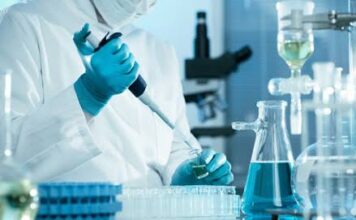The Medical Laboratory Science Council of Nigeria reported that it inspected 103 new laboratories, closed down 23 others, and apprehended six individuals practicing unlawfully between May 2023 and May 2024.
According to Dr. Tosan Erhabor, the Registrar of the council, significant strides have been made in combating illegitimate practices and ensuring reliable medical testing over the past year.
These efforts have not only promoted professionalism within the medical laboratory field but also decreased instances of unauthorized practices, guaranteeing the delivery of quality and trustworthy test outcomes to the public.
Erhabor emphasized that the council’s primary responsibilities include evaluating and certifying medical laboratories to meet the council’s stringent criteria, conducting regular monitoring and inspections to enforce compliance with professional standards, identifying and prosecuting offenders engaging in illegal and substandard activities, as well as disciplining professionals involved in unethical practices.
Regarding education, the registrar mentioned that the council routinely assesses universities providing Bachelor of Medical Laboratory Science programs and Colleges of Health Technology offering Medical Laboratory Technicians programs.
Through the implementation of structured evaluation processes and accreditation checklists aligned with the council’s minimum academic standards, these assessments are conducted to maintain the quality and integrity of the educational programs in the field of medical laboratory science.
“This policy provides that the minimal requirement for the operation of medical laboratory practice in Nigeria is a demonstrable evidence of Quality Management System implementation with a mandatory participation in External Quality Assessment through inter-laboratory comparison,” he stated.
The registrar announced that between May 2023 and the present, the council successfully conducted two External Quality Assessment test events, with a significant increase in laboratory participation from 1000 to 1590.
To address subpar performance, the council established a Proficiency Testing Corrective Action Team and conducted corrective action visits to underperforming laboratories across the country’s six geopolitical zones.
Additionally, the council secured funding from the US Center for Disease Control through the African Society for Laboratory Medicine, enabling the re-accreditation of the National External Quality Assessment Laboratory to the esteemed ISO 17043:2010 standard.
” All these have helped reduce the number of errors emanating from the health laboratory sub-sector, thus ensuring credible medical diagnosis,” he noted.
He explained that to ensure the accuracy and reliability of medical laboratory equipment, the council, in collaboration with the CDC and the Institute for Human Virology Nigeria, took steps to guarantee the precision of test measurements and laboratory equipment performance.
This was achieved by establishing the National Laboratory Equipment Calibration Centre in Abuja, which has received international accreditation, thereby promoting quality and excellence in laboratory diagnosis.
“The services of this centre reduced errors associated with laboratory equipment calibration, thus ensuring credible medical diagnosis,” he added.
Regarding the regulation of in-vitro diagnostics, the council established the Public Health In-vitro Diagnostics Control Laboratory in Yaba, Lagos, during the period under review, as part of its statutory mandate to oversee production.
To combat quackery and ensure reliable medical diagnosis, the council also registered new companies involved in the importation, sale, and storage of diagnostic laboratory reagents and chemicals.
Furthermore, the council issued multiple import permits and conducted post-market validation of medical laboratory equipment, reagents, and Rapid Test kits to ensure their quality and accuracy.
He added, “These have impacted positively on the quality of test results emanating from medical laboratories and helped to check the proliferation of sub-standard test kits propagated by quacks in the Country.
“On Medical Laboratory Accreditation, the council accredited three new medical laboratories to ISO 15189 from May 2023 till date.
“This has helped to engender confidence in test results emanating from our laboratories on the International scene as accredited by one and accepted by all popular maxim of accreditation is adhered to,”
